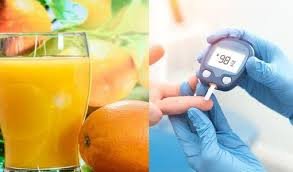In an age where dietary choices are increasingly linked to long-term health outcomes, a recent study has sparked widespread concern. According to the findings, consuming sugar-sweetened beverages such as soda and even seemingly healthy fruit juices can elevate the risk of developing Type 2 Diabetes. This revelation is critical, especially in countries where diabetes is rising at an alarming rate. In this blog, we delve deep into the study, its implications, and what individuals can do to make healthier beverage choices.
What the Study Reveals
Published in a reputable medical journal, the study tracked over 100,000 participants over a decade to analyze the link between beverage consumption and diabetes onset. Key findings include:
- Increased Diabetes Risk: Individuals who consumed sugar-sweetened beverages (SSBs) like sodas regularly had a 20–25% higher risk of developing Type 2 Diabetes.
- Fruit Juices Are Not Exempt: Even 100% fruit juices, often marketed as healthy alternatives, were found to spike blood sugar levels and contribute to insulin resistance over time.
- Artificially Sweetened Drinks Aren’t Always Safe: While diet sodas did not raise blood sugar immediately, long-term consumption was associated with changes in gut microbiota and metabolic disturbances that may indirectly influence diabetes risk.
Why These Beverages Are Harmful
1. High Glycemic Load
Both sodas and fruit juices contain high levels of fructose and glucose, which rapidly increase blood sugar levels.
2. Lack of Fiber
Whole fruits contain fiber that slows sugar absorption, but juicing removes fiber, causing an instant sugar spike.
3. Liquid Calories Are Deceptive
Unlike solid food, beverages don’t trigger the same feeling of fullness. This leads to overconsumption of calories without the body realizing it.
Public Health Impact
The growing consumption of sugary drinks has led to a global health crisis, particularly in urban areas. According to the World Health Organization (WHO):
- Diabetes affects over 420 million people globally.
- Sugar consumption is one of the leading modifiable risk factors.
If this trend continues, the burden on healthcare systems could be catastrophic.
Expert Opinions
Nutritionists and endocrinologists are now urging people to rethink their beverage choices:
“Drinking a glass of soda or juice may seem harmless, but the cumulative impact over months and years is significant. We must start treating sugary beverages like the health hazard they are.”
– Dr. Kavita Rao, Endocrinologist
What Should You Drink Instead?
Here are healthier beverage alternatives that can help reduce your risk:
- Water – Always the best choice
- Infused Water – Add lemon, mint, or cucumber for flavor
- Herbal Teas – Naturally caffeine-free and sugar-free
- Sparkling Water – A fizzy but sugar-free substitute
- Vegetable Juices – Low in sugar and rich in nutrients
How to Read Labels and Make Smart Choices
To avoid high-sugar drinks:
- Check the sugar content per serving (anything above 5g per 100ml is considered high)
- Look for “no added sugar” labels
- Avoid terms like “fruit drink” or “juice cocktail,” which often contain added sweeteners
Policy Recommendations
Health experts are calling for:
- Sugar taxes on sweetened beverages
- Clearer labeling on fruit juices and “health drinks”
- Bans on sugary drink advertising targeted at children
- Public awareness campaigns highlighting the risks
Countries like Mexico, the UK, and India have already introduced sugar taxes with positive public health outcomes.
Final Thoughts
This new study serves as a critical wake-up call for both individuals and policymakers. While occasional indulgence may not be harmful, regular consumption of sodas and fruit juices is clearly linked to a higher risk of diabetes. It’s time to reconsider what we drink and educate ourselves on the long-term health impacts of our dietary choices.
Remember: Healthier beverage choices today can lead to a healthier, diabetes-free tomorrow.


